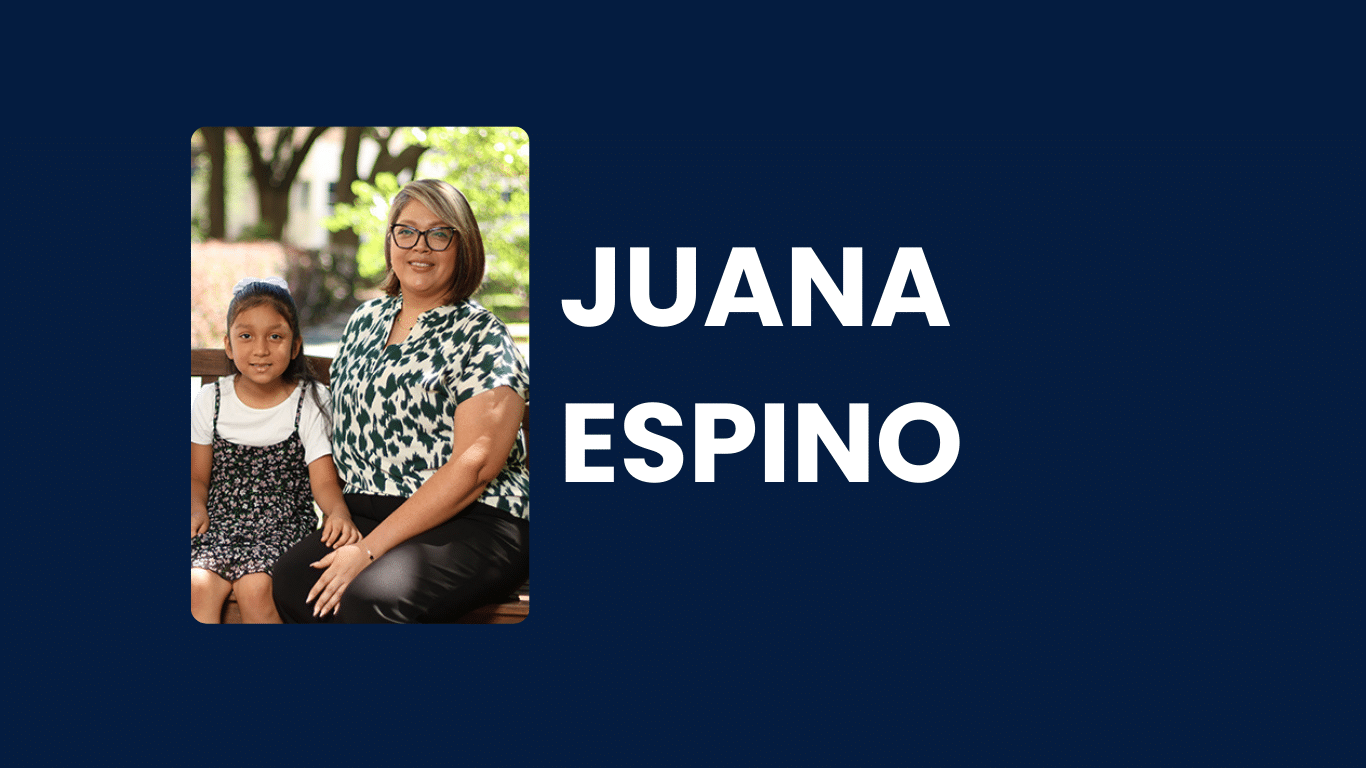Juana Espino, Motherhood & Cervical Cancer
By ciscrp1|Nov 23, 2024
By ciscrp1|Nov 23, 2024

A Shocking Diagnosis
Juana Espino, her husband and two children were all looking forward to the birth of her third child. Two weeks before her delivery date, Juana started spotting blood. Juana immediately made an appointment with her obstetrician. During the exam, the physician located a mass near her cervix and recommended a biopsy, after the baby’s birth. Juana’s C-section went well and her new daughter was healthy.
But Juana was not.
The results of the biopsy indicated that she had Stage 4 cervical cancer.
“From there, it was just a rollercoaster, at first,” recalled Juana. “I didn’t have health insurance. You always have a pap smear at the beginning of your pregnancy, and mine was normal. The cancer had really grown while I was pregnant, and the doctor was worried about it metastasizing.”
The incidence of cervical cancer complicating pregnancy is low; only about 1% – 3% of woman diagnosed with cervical cancer are pregnant or postpartum when they are diagnosed.
After discussing several options of treatment, Juana’s obstetrician advised that she meet with Dr. Joseph A. Lucci, a board-certified gynecologic oncologist at The University of Texas Health Science Center at Houston (UT Health). Dr. Lucci was also the Principal Investigator of a clinical trial treating Stage 4 cervical cancer. Juana met with Dr. Lucci and learned more about the course of treatment that the trial would include: a hysterectomy, followed by 6 weeks of chemotherapy and radiation.
“The good thing is, I have a big family,” said Juana. “I talked about it with my husband and my 6 sisters went with me to talk with Dr. Lucci about the clinical trial. I am grateful that I had a big support system. I was truly blessed.”
Since Juana was the mother of a newborn, it was decided to delay chemotherapy and radiation for two months. This lead to another difficult decision.
“Because I was having radiation treatment, we decided that my mother would take care of our baby, to be on the safe side,” Juana recounted. (Patients receiving certain types of radiation treatment are advised to limit or avoid contact with children under the age of 18 and pregnant women. “It was hard, to be honest, but I knew my mother would take good care of her. I did get to see the baby, of course, and when I did, I was really careful. I would dress in layers (because of the radiation) and hold her on a pillow, not directly.”
Juana’s sisters were encouraging when the effects of the radiation treatment became particularly severe during the last part of treatment. “I didn’t feel as sick during chemo as I did during the radiation,” Juana explained. “The radiation was really painful and my sisters kept telling me that I could do it.”
Aileen, Juana’s niece, was also instrumental in supporting her during treatment. “She postponed going to college, to be with me on this journey,” said Juana.
Joining a Clinical Trial
Juana was impressed with the care she received during the clinical trial. “I could call Carole Robazetti (the coordinator) in the middle of the night, and she’d be there. Dr. Lucci was also available at any time to discuss how I was feeling and what was happening,” said Juana. But Juana didn’t discuss one major impact that she experienced, until three years after the trial had concluded.
While participating on a CISCRP Patient Advisory Board, Juana listened to panelists describing the physical and emotional impacts of severe atrophic vaginitis, symptoms that she was experiencing, but never discussed with Dr. Lucci or Carole. (CISCRP Patient Advisory Boards solicit feedback and gather valuable insights directly from patients and their support network on a variety of critical clinical study related areas. Learn more here.
“I was afraid to speak up and after I heard the others share their stories, I decided to talk with Carole. She asked me why I hadn’t said anything before, and I just hadn’t felt comfortable.” Juana was prescribed medication that has improved the condition significantly.
The treatments Juana received in the clinical trial eradicated the cervical cancer. Juana and Carole became friends.
“I really wanted to give back somehow, and Carole told me about WOW, the Women Well Program,” said Juana. WOW was founded in 2018, under the umbrella of the Latattore Foundation and the University of Texas. WOW provides pap smears and mammograms at no cost to low-income/uninsured women through monthly community health fairs.
“Members of the Hispanic community don’t always have health insurance, so WOW is helping to save peoples’ lives. I started as a volunteer and now I’m on staff,” said Juana.
Juana says she would participate in a clinical trial again, and that she would be more open to discussing related impacts. “We need to speak and let people know what’s happening,” Juana said.
When asked if she has any words of advice to individuals considering clinical trial participation, Juana advised the following.
“When you’re deciding about a clinical trial, read everything. Read every detail. Those little details will help you decide if you want to be part of it. And get a second opinion before you make your final decision.”
Additional Resources: